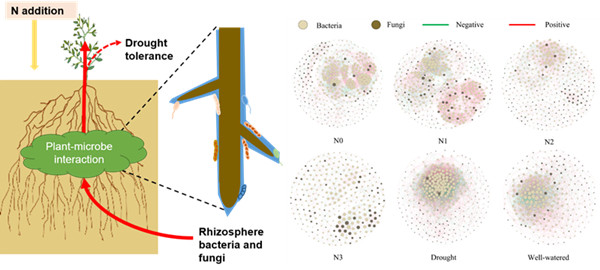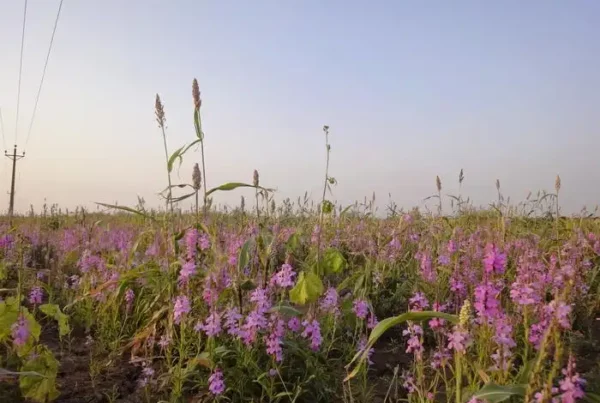Researchers from the Xinjiang Institute of Ecology and Geography (XIEG) of the Chinese Academy of Sciences have revealed the response mechanism of rhizosphere microorganisms of deep-rooted leguminous plant to water and nitrogen changes in desert ecosystem.
The findings were published in Applied Soil Ecology.
Plant-microbial interactions contribute to plant nutrition, immunity, and evolution and are essential for maintaining ecosystem stability. Nitrogen (N) deposition and drought are the main drivers of global change, both of which affect soil microorganisms.
The study of the relationship between plants and rhizosphere microorganisms under the disturbance of environmental change is helpful to predict the potential impact of global change on desert plants and even desert ecosystems from the perspective of microbial ecology.
The researchers selected Alhagi sparsifolia, the dominating species in the southern margin of the Taklamakan desert, to systematically study the response of desert plant rhizosphere microbes to simulate N deposition and water stress.
The results showed that rhizosphere bacterial and fungal communities had different responses to nitrogen enrichment under different water conditions.
N addition did not significantly alter the composition and diversity of A. sparsifolia seedling rhizosphere bacteria, while markedly changing those of fungi, demonstrating that rhizobacteria were more resistant to the interference of N and water.
Rhizosphere microbial communities were also associated with soil properties, as well as host plant drought-tolerance traits. The more complex rhizosphere microbial networks of poor nutrient and drought-stressed A. sparsifolia seedlings also exhibited more sensitivity to environmental changes, while N and water inputs could potentially enhance the tolerance of phreatophyte seedlings to environmental interference by increasing functional redundancy.

The study may help to improve the understanding of mechanisms of N deposition influences desert ecosystems, by linking changes in plant acclimatization characteristics to processes mediated by rhizosphere microorganisms.
Read the paper: Applied Soil Ecology
Article source: Xinjiang Institute of Ecology and Geography (XIEG) of the Chinese Academy of Sciences
Author: Li Yuan
Image credit: Vyacheslav Argenberg / http://www.vascoplanet.com/







